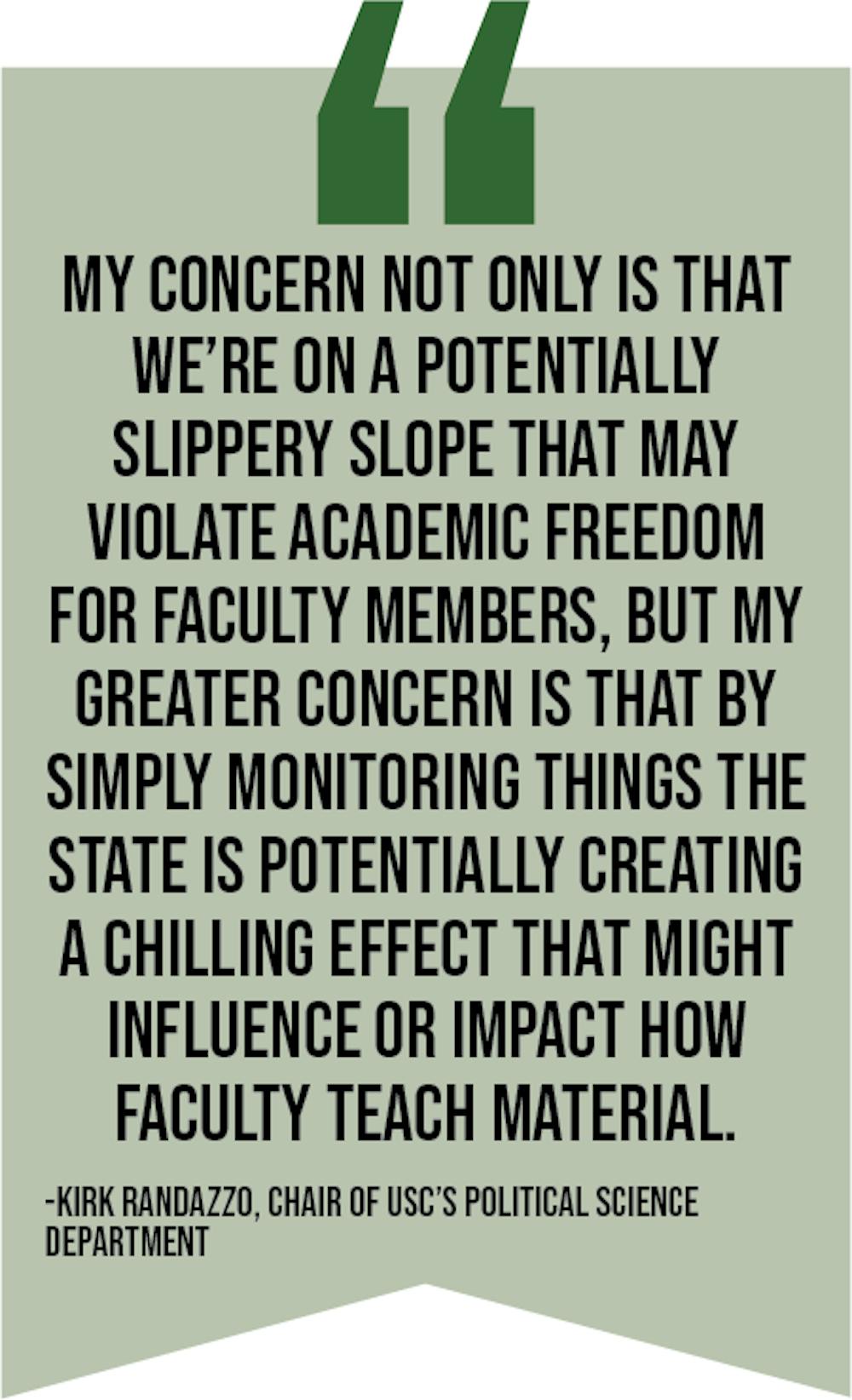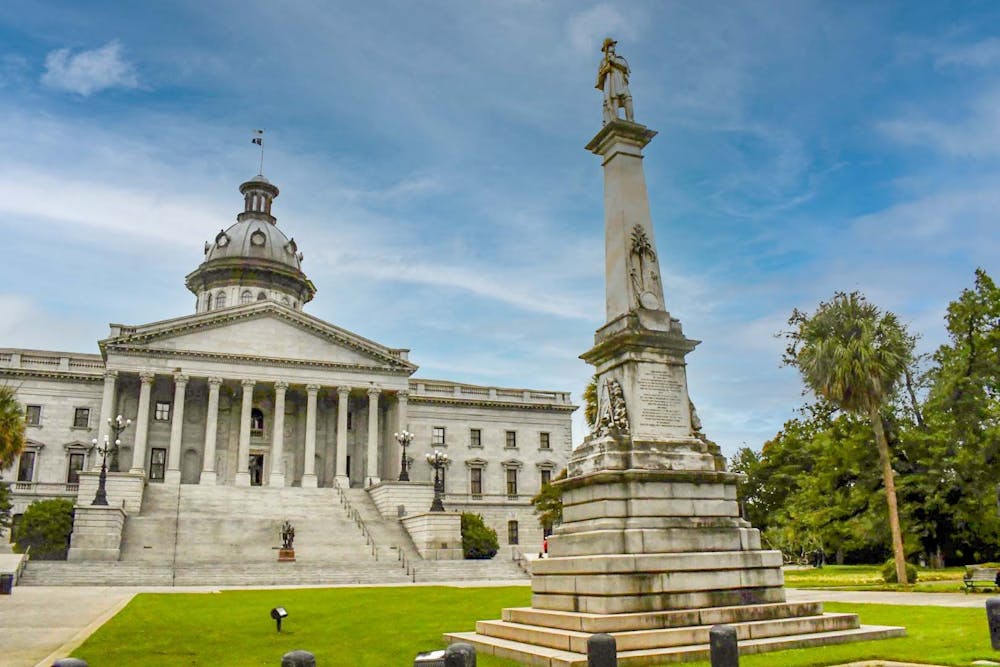In 2021, Republican politicians and public officials constantly tried to interfere with academic operations at South Carolina’s universities. This trend, which does not seem to be slowing, is a dangerous threat to academic freedom in South Carolina.
In one example of this interference, Gov. Henry McMaster signed the “REACH Act” into law in April. This bill, which had been bounced around the state legislature for years, mandates that state universities require their students to take a class that teaches certain aspects of American history, including the country’s “founding documents.”
There’s certainly nothing wrong with learning about early American history. However, Kirk Randazzo, chair of the political science department at USC, said it is disturbing and rare for a legislature to place specific requirements on professors in the classroom.
The bedrock of academic freedom is the idea that instructors should have the freedom to teach mostly as they see fit, and even relatively inoffensive violations of that idea — such as the REACH Act — threaten the academic independence of South Carolina’s universities.
This threat is clearly shown by the South Carolina Commission on Higher Education’s (CHE) recent move to request section-specific syllabuses from USC and other universities to ensure compliance with the REACH Act.
The CHE’s request is dangerous because it makes it easy for the CHE, and whoever it shares the information with, to determine exactly what specific professors are teaching. While the CHE has agreed to let USC black-out instructors’ identifying information from the syllabuses, anyone could simply look at the USC class bulletin or website to find that information.

The fear, as stated by Randazzo, “not only is that we’re on a potentially slippery slope that may violate academic freedom for faculty members, but my greater concern is that by simply monitoring things, the state is potentially creating a chilling effect that might influence or impact how faculty teach material.”
Randazzo is right, and he’s not the only one that’s concerned. During the USC Faculty Senate's November 2021 meeting, USC history professor Carol Harrison said “the chill is already here. The chilling effect, we are feeling it.”
The “chilling effect” that Randazzo and Harrison referred to is the idea if the legislature manages to intimidate or threaten professors and university officials enough, then they can stop them from teaching certain things, even if there is no formal law against it.
Harrison was referring to an open letter sent in June 2021 from Republican members of South Carolina’s Congressional delegation to Harris Pastides, USC's interim university President, and James P. Clements, the President of Clemson University.
This letter criticized the universities for teaching Critical Race Theory (CRT) and other academic ideas which the Representatives disagreed with. It also called on the two presidents to “eradicate” any teaching of those ideas.
Disturbingly, the letter also identified and attacked a USC professor by name who teaches a CRT class.
By trying to interfere in USC’s operations through bills like the Republican-sponsored REACH Act and stunts like the open letter, Republicans are hoping to stop professors from teaching ideas that might stand against the GOP’s hard-right politics.
Professors understandably do not want to become targets of right-wing smear campaigns, such as the one that unfolded against Nikole Hannah-Jones at UNC-Chapel Hill last spring. Teachers might also refrain from teaching controversial but important topics if they believe it might trigger backlash from the legislature or other conservative actors. This concern may be particularly important for faculty members who are "already scrutinized to a greater extent," such as faculty without tenure, women and people of color, Randazzo said.
To avoid such a situation, which would clearly violate any conception of academic freedom, USC’s administration must stand up for its faculty. The administration cannot allow South Carolina’s government to crush academic freedom and independence at USC, and it must make that stance clear to the governor and the state legislature.
During November's Faculty Senate meeting, a professor asked interim provost Stephen J. Cutler a question about when faculty will see public support from the administration. Cutler said “I can’t answer the question. It has to be something that really bubbles up to the level where there would need or would warrant a public address."
Whether Cutler and the rest of the administration see it or not, we’re well past that point already, and it only seems to be getting worse.
Two bills that would effectively abolish academic freedom in South Carolina were pre-filed in the S.C. House of Representatives last December. One would ban public schools from teaching any systemic understanding of race or gender and the other would ban universities from granting tenure, which is often a key structural guarantor of academic freedom that protects professors from being fired because of their teaching or research.
There is no guarantee that either bill will pass, but if one of them becomes law, it would severely damage public education in South Carolina — as if it wasn't in bad enough shape already.
With this reality in mind, one has to ask: If that's not enough for the administration to take a public stand for our university, what is?

